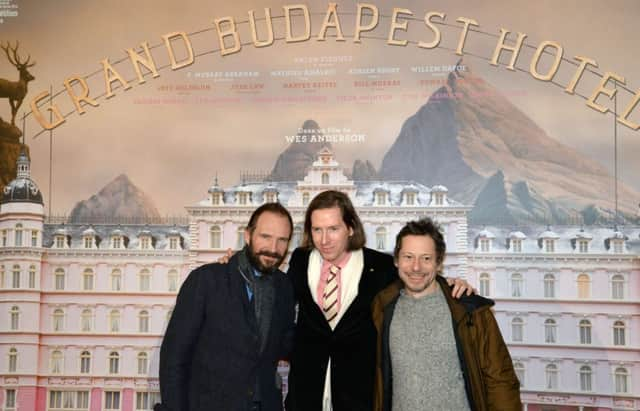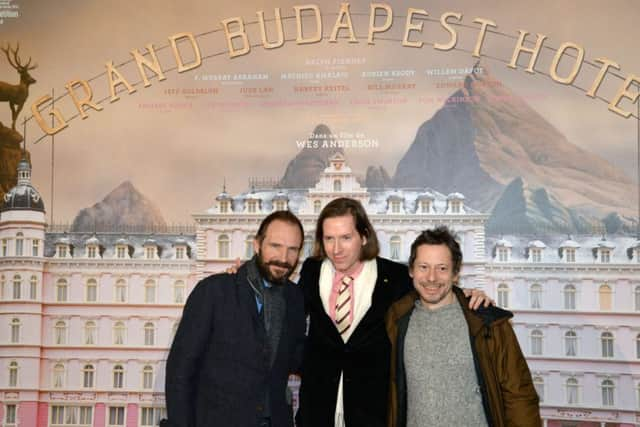Film review: The Grand Budapest Hotel


The Grand Budapest Hotel
Director: Wes Anderson
* * * *


Set for the most part in the fictional Eastern European country of Zubrowka in the run-up to the outbreak of the First World War, it revolves around the titular hotel’s debonair concierge, Gustave H (Ralph Fiennes), and his efforts to clear his name after being accused of murder by the unscrupulous family of his recently deceased 84-year-old benefactor and occasional lover (“I’ve had older”, he quips of his crinkly paramour, amusingly played by a prosthetics-caked Tilda Swinton). This basic set-up provides a solid foundation for the richly detailed caper that follows as Gustave and his prodigy, a lobby boy called Zero Mustapha (newcomer Tony Revolori), steal a priceless painting and find themselves on the run from a police inspector (Edward Norton), some fascist death squads, and a leather-clad henchman with a disregard for people’s fingers (Willem Dafoe).
Featuring elaborate jailbreaks, a hotel lobby gunbattle, and a snow-bound chase sequence that should satisfy the curiosity of anyone who has ever wondered what a Wes Anderson Bond movie might look like, the film is certainly his busiest and most action-packed to date. It’s also his most stylistically ambitious, deploying different aspect ratios and two different framing devices to tell the elaborate and amusingly convoluted story. Throughout, Anderson luxuriates in the quirks and behind-the-scenes machination of the setting, creating another wonderfully insular world and populating it with a raft of typically fastidious but imaginatively realised characters (an international cabal of concierges headed by Bill Murray is especially amusing).
Advertisement
Hide AdAs ever with creator of Rushmore, The Royal Tenenbaums and Moonrise Kingdom, though, there’s more going on here than whimsy. This is a world in which civility is on the verge of being wiped out by the forces of history and Gustave’s largely unflappable determination to maintain the decorum of the hotel’s golden age is Anderson’s nuanced way of letting the chaos of the era filter in, underpinning the high jinks of the plot with a poignancy that helps tether it to something real. It’s wonderful stuff.